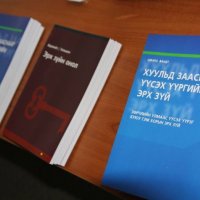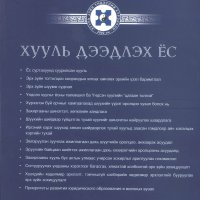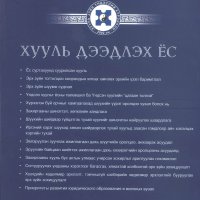The Law of Mongolia on Investment has seen a lot of alteration of the past years, however the current position can be seen as relatively stable, needing a two third vote by Parliament for repeal or amendment. However this itself could be contended as it attempts to bind future Parliament’s going against the constitution.
New regulations
‘The law of Mongolia on Investment’ came into effect Nov. 2013 replacing ‘The Law of Mongolia on Foreign Investment’ [1993] and ‘The Law of Mongolia on the Regulation of Foreign Investment in Business Entities Operating in Sectors of Strategic Importance.
Further current investment laws include:
‘Law of Mongolia on the Implementation Procedure for the Investment Law’, which allowed for the new ‘Law of Mongolia on Investment’ to be applied to existing investments.
The new law expressly does not apply to the following:
- Investments by Mongolian State authorities with state funding
- Investments by International Organisations
- Investments by NGO’s
- Investments by private persons in the form of donations or ex gratia grants.
- Investment agreements relating to the nuclear energy sector.
Implementations of ‘The law of Mongolia on Investment’ [2013]
Investment is defined as: “tangible or intangible assets invested in share capital of a legal entity carrying-out profit making activities in Mongolia as reflected in the financial statements”
Implementations for foreign private investors:
- It is applied to both foreign and domestic direct investments
- It strengthens the registration of investments for the creation of a subsidiary by dictating that investments from private foreign sources need only register with ‘LERO’ (the Legal Entities Registration Office). (Important note: any live foreign invested companies registered with FIRRD must re-register with LERO once their FIRRD certificates have expired.)
- Previously private investments needed direct authorisation to invest in Mongolia, especially in sectors of strategic importance (eg. Mining). Now there are no approval requirements on private firms, allowing for greater ease of private investment for FSOE’s (foreign state owned legal entity). (See (ii) bellow for limitations).
- There is now a definition of ‘FSOE’ (a foreign state owned legal entity), which is “a legal entity in which a foreign state directly or indirectly holds more than 50% of the entity’s issued shares”.
(a) All FSOE’s will be required to meet criteria set out in the past SFI law e.g. whether the investment could conflict with the national security policy, restrict competition or have an undesired effect on state revenues.
- The new law allows for both foreign and domestic investors to stabilise determined taxes for a period ranging from 5-18 years (subject to the size of the investment and its geographical location). However, to qualify for tax stabilisation the investors must receive a certificate from the newly established ad hoc board. (See fig. 1.0 and 1.1 for breakdown of the issue of Stabilisation Certificates.)
1. The criteria for tax stabilisation is as follows:
- The amount of capital invested exceeds the applicable amount specified in the investment law.
- The environmental impact of the investment has been investigated
- The investment is seen to create sustainable new jobs
- The investment would introduce advanced technology.
2. The stabilisation can be extended by 1.5 times in its specified category (see fig. 1.0 and 1.1) where the investment:
(a) will contribute long-term to Mongolia’s economic and social cimate.
Note: investments in the production, sale or import of tobacco or alcohol do not qualify for tax stabilisation and those already in agreements with the government are not eligible to apply for a stabilisation certificate.
- The new law initiates legal guarantees to protect investments in Mongolia. These guarantees include:
- Protection from nationalisation
- Protection of Intellectual Property rights
- The right to repatriate after the payment of the required taxes
- The freedom to choose a dispute resolution forum.
- The new law also installs both tax and non-tax incentives to entice investment to Mongolia. Non-tax incentives include:
- Land rights
- Immigration rights
- Residency permits
Tax incentives include:
- Exemption from payment of certain taxes
- Advantageous tax treatment
- Acceleration depreciation and amortisation, which can be subtracted from taxable income.
- The carrying forward of losses
- Deduction of the expenses of employee training from taxable income.
- Any equipment or technology that is imported for the bellow-listed options may be exempt from import duties and benefit from reduced VAT tax whilst under construction. Subject to this is the construction of…
- …plants to process: construction materials, agricultural products, petroleum or export-orientated plants.
- … plant for Nano-, bio-, or innovation technology
- … power plants or railways.
- A new deadline of 45 days has now been introduced for regulatory bodies to produce their verdict on applications put to them e.g. the issue of a stabilisation certificate or the approval for a FSOE to invest in a sector of strategic importance.
Fig. 1.0, Stabilisation Certificates for investment in heavy industry, mining and infrastructure sectors.
|
Investment amount (MNT in billions) |
Stabilisation Certificate validity (years) |
Investment term (years) |
||||
|
|
Ulaanbaatar Region |
Central Region |
Khangai Region |
Eastern Region |
Western Region |
|
|
3-100 |
5 |
6 |
6 |
7 |
8 |
2 |
|
100-300 |
8 |
9 |
9 |
10 |
11 |
3 |
|
300-500 |
10 |
11 |
11 |
12 |
13 |
4 |
|
500+ |
15 |
16 |
16 |
17 |
18 |
5 |
Fig 1.1 Stabilisation Certificates for investment in any other sector
|
Investment Amount (MNT in billions) |
Stabilisation Certificate Validity (years) |
Investment term (years) |
||||
|
Ulaanbaatar Region |
Central Region |
Khangai Region |
Eastern Region |
Western Region |
|
|
|
10-30 |
5-15 |
4-12 |
3-10 |
2-8 |
5 |
2 |
|
30-100 |
15-50 |
12-40 |
10-30 |
8-25 |
8 |
3 |
|
100-200 |
50-100 |
40-80 |
30-60 |
25-50 |
10 |
4 |
|
200+ |
100+ |
80 + |
60+ |
50+ |
15 |
5 |
All investors are required to:
- Adhere to the laws and regulations of Mongolia
- Provide work/services within national and international standards.
- Compile accounting records that meet international standards.
- Provide necessary information to relevant state authorities on time
- Implement investment activities which are in the interest of customers, the environment and human development
- Pay social and health insurance in relation to their employees (see relevant legislation)
- Work with good corporate governance principles as well as provide training and improve the professional skills of its employees.
- Respect the traditions and customs of the Mongolian people AND
- Make investment in accordance with the Investment law (those who hold stabilisation certificates.)





